MercoPress. South Atlantic News Agency
Tag: Falklands budget
-
Friday, May 16th 2025 - 21:22 UTC
Falklands Government Budget announcement delayed until July
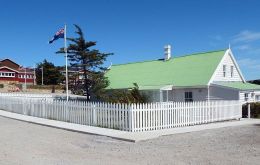
The Falkland Islands Government has postponed the announcement of its 2025/26 budget, which was initially scheduled for June 3. According to a statement from the Legislative Assembly, the delay comes after members of the Budget Select Committee expressed dissatisfaction with the final draft presented, leading to a decision to take additional time for consensus-building.
-
Wednesday, June 5th 2024 - 16:59 UTC
Falkland Islands Government publishes Budget for 2024/25

Focusing on our current and future generations is at the heart of the Falkland Islands Government Budget for 2024/25. The Budget recognises these two themes are essential for the community to mitigate against the continued global cost of living crisis, and the uncontrollable situations happening around the world, which ultimately impact our economy.
-
Thursday, June 8th 2023 - 15:14 UTC
Falklands budget, “it won't be easy for the private sector”

The latest announcements on the Falkland Islands budget have not gone without comments from the Falklands Chamber of Commerce and its current president Mike Summers, according to an interview on the local television channel.
-
Wednesday, May 31st 2023 - 18:28 UTC
Falkland Islands Government publishes Budget for 2023/24
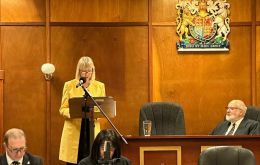
On 31st May, the Governor of the Falkland Islands made her annual address, state of the Nation, to the Legislative Assembly. In her speech, Alison Blake CMG reviewed last year's challenges and highlights, set out the government's and public service priorities for the year ahead, and paid tribute to the economy.
-
Wednesday, June 2nd 2021 - 01:15 UTC
Falklands publishes ‘prudent budget’ for 2021/22
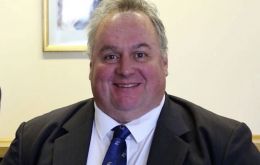
The Falkland Islands Government yesterday published its budget for the upcoming financial year, describing it as a prudent budget that focuses on stability and continuity. The budget forecasts operating expenditure of £78.3m and revenues of £92.2m, as well as a capital programme totalling £53.5m for the upcoming financial year.
-
Wednesday, June 10th 2020 - 22:10 UTC
Falklands 2020/21 budget reflects stability and continuity: no rises in fees or charges
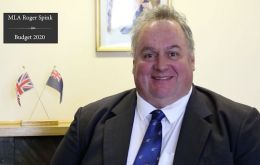
Stability and continuity are at the heart of the Falkland Islands Government Budget for 2020/21. The Budget recognises these two themes are essential in the time of uncertainty stemming from the global COVID-19 pandemic.
-
Friday, December 13th 2019 - 09:55 UTC
Falkland Islands Government expects “Robust budgeting” amid “challenging” international relations scenario

“As a government we continue to be careful stewards of our finances and operate a robust and credible budgeting process that is both open and transparent,” Falkland Islands Government’s Chief Executive Barry Rowland stated during a speech to Legislative Assembly.
-
Friday, November 29th 2019 - 08:01 UTC
Falklands' finances have to manage with budget surpluses

The Falkland Islands Standing Finance Committee met on November 27 in the Liberation Room, Stanley and reported that the forecast operating surplus for the year is now £11.3 million, excluding capital expenditure.
-
Friday, December 14th 2018 - 08:28 UTC
Falklands' government operating surplus stands at £9.4 million
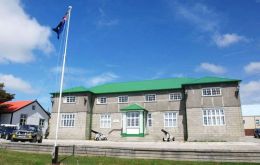
The Falkland Islands Government Standing Finance Committee heard on Wednesday that the forecast operating surplus for the whole of the year now stands at £9.4 million. Expenditure is expected to ramp up over the remainder of the financial year, with plenty of infrastructure work being scheduled for the summer months.
-
Wednesday, September 5th 2018 - 07:55 UTC
Falklands 2017/18 budget had an operating surplus of £38 million

The Falkland Islands Government operating surplus of £38 million for 2017/18 was driven primarily by favourable Corporation Tax receipts. The original budgeted deficit in my view led the former Legislative Assembly to be over cautious in their demands leading to unnecessary thrift in some areas, according to MLA Roger Spink, who is head of the Government Services Portfolio of the Assembly.
